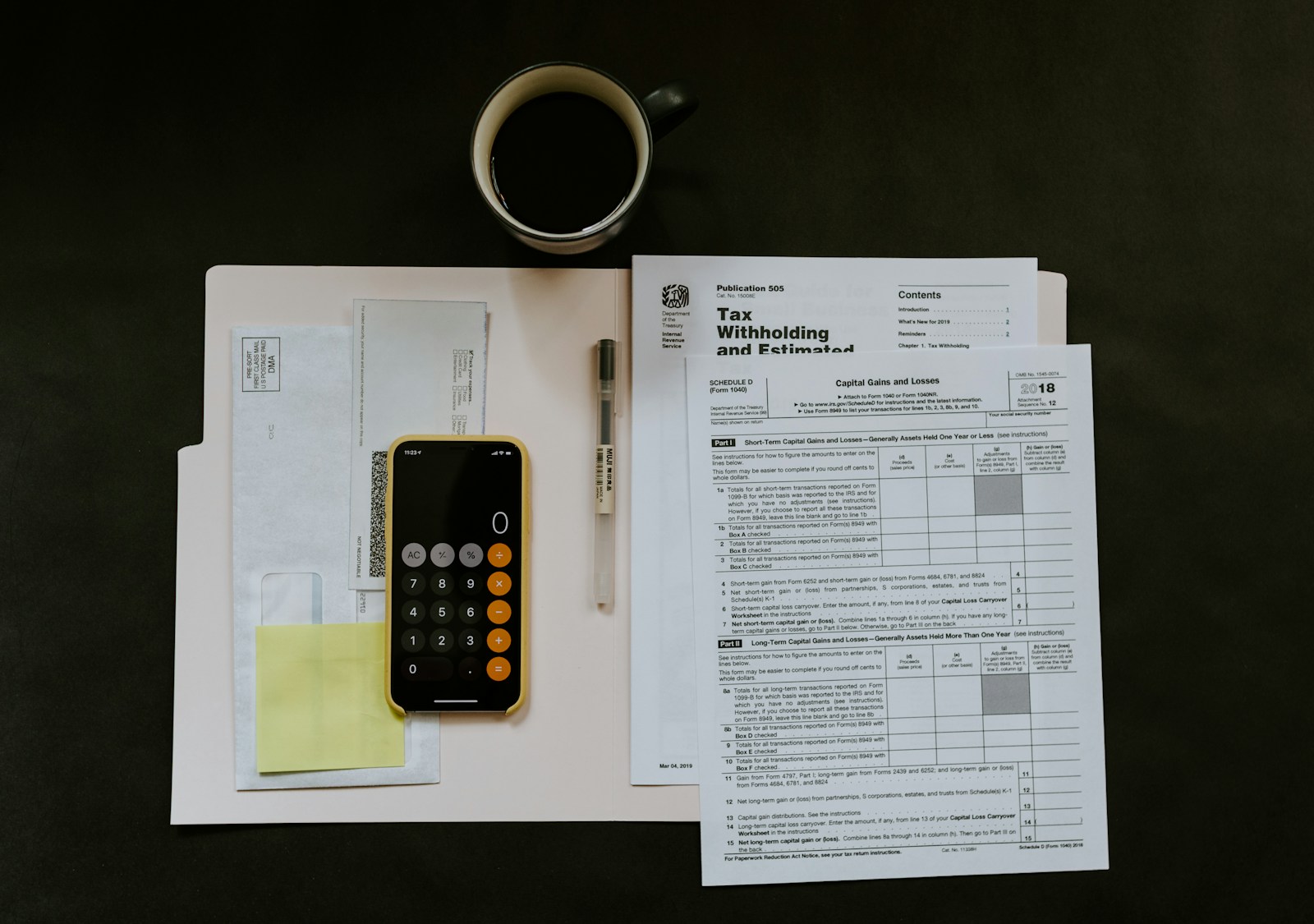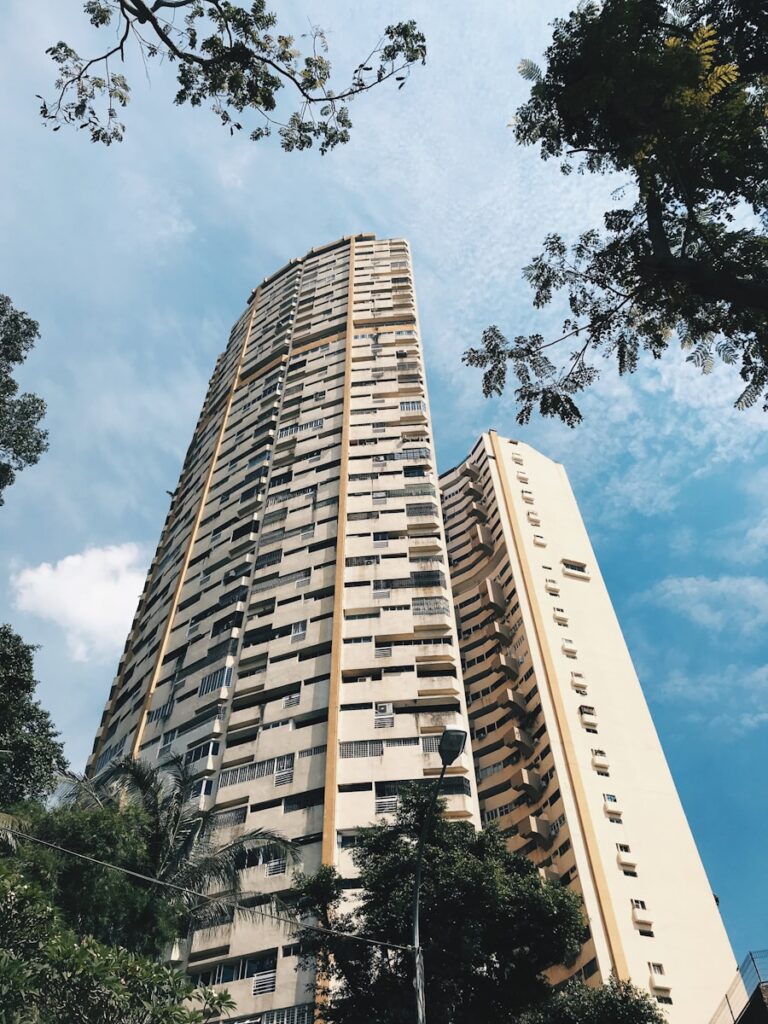Setting the Scene: Property Tax in Singapore
In Singapore, property tax is a significant consideration for property owners. The system operates on an annual basis, with the tax calculated based on the annual value (AV) of your property—a term used to describe the estimated rent you could earn if you were to lease it out. I recall when I first looked into this, £30,000 seemed like an astonishing figure; however, the AV for my flat turned out to be only $24,000, which placed my property tax at a rather manageable $360 for the year. A clear understanding of these components will save you from nasty surprises come tax time.
Check Property Tax Singapore Before It Checks You
As a new homeowner, I vividly remember my initial encounter with property tax. The Inland Revenue Authority of Singapore (IRAS) arrived with my annual tax bill notification, shocking me with the $480 charge. Confusion set in, and I found myself rifling through papers, trying to make sense of how such a number was derived. A brief visit to the IRAS website and an overview of the property tax framework clarified my doubts. The tax is based on the AV, which is assessed annually, and understanding the calculation gave me peace of mind. It’s astounding how an informed approach can turn a daunting experience into something manageable.
What Happens When You Check Your Property Tax Late
I’ve seen friends who delayed checking their property tax, only to find themselves with hefty penalties. One instance comes to mind in which a friend received a bill of $2,000 because he neglected to update the IRAS about a recent renovation that increased the assessed value (AV) of his apartment. The situation could have easily been avoided if they had been proactive. As a precaution, I’ve set reminders every March to not only check my property tax assessment but also to report any changes that might alter my AV. Staying ahead truly is the best policy.
Adjusting Expectations with Changing Values
Another experience that stands out involves my neighbour, who faced a yield drop when the market began to cool. Their property, once garnering high rental income, saw a decline in AV, resulting in a reduced property tax obligation. However, they weren’t prepared for the sudden dip in their cash flow. I remember going through this phase with them, where I learnt that property tax can reflect market conditions and that staying updated with surrounding property values can be incredibly beneficial. Periodic evaluations of your property value not only inform tax expectations but also assist with potential financial planning.
As a resident of Singapore, grappling with property taxes has been a significant undertaking. Understanding the intricacies of property tax is vital, especially when it comes to managing expenses effectively. During my journey of property ownership, I encountered various aspects of property tax that shaped my experience. Here are some reflections on this imperative topic.
Key Takeaways:
- Timely Assessment: When I first purchased my property, I was surprised at how the property tax rates varied depending on the property type and location. It made me realise the importance of regularly checking the Singapore property tax website and understanding how my property was assessed. This helped me to assess my financial commitments accurately.
- Revisiting Valuations: I recall a moment when my property’s valuation increased significantly after a nearby development project was completed. This change affected my annual property tax substantially. Regularly checking for updates on valuation changes can prevent unwelcome surprises during tax assessment seasons.
- Using Available Resources: Engaging with online forums and utilising tools from the Singapore Land Authority improved my understanding of property tax. The information I gained from other property owners was invaluable, guiding me on nuances like tax rebates and liabilities that I wasn’t initially aware of.
In the long run, checking your property tax consistently not only facilitates financial planning but also empowers you as a property owner. Being proactive has certainly allowed me to maintain control over my financial landscape, preventing any unexpected financial burdens.
The Awakening: My First Encounter with Property Tax
My first encounter with property tax was truly enlightening. I had recently purchased a flat in Singapore, brimming with excitement about homeownership. However, the unexpected arrival of a property tax bill quickly overshadowed my excitement. The figure was significantly higher than I had anticipated, leaving me feeling overwhelmed. Little did I know at the time that understanding property tax would be an integral part of managing my finances as a homeowner.
Navigating the Complexities of Assessments
Assessing property tax can be a labyrinthine process, especially for first-time owners. Understanding how the government evaluates property value often requires digging into various factors, from the type and location of the property to its rental yield. I had to educate myself on the Annual Value (AV) of my flat, which became the basis for tax calculations. The AV can fluctuate with market conditions, meaning I had to stay vigilant about changes that would affect my bills in the future.
A Surprising Tax Bill: Realising the Impact
The first property tax bill had a profound impact on me. As a new homeowner, I hadn’t fully grasped the extent of the financial obligations. The amount, $4,000, doubled my expectations and ignited a sense of urgency within me to explore avenues for reduction. It was a stark realisation that this recurring charge would influence my budget significantly, forcing me to reevaluate my spending habits.
Once I had absorbed the shock of that initial bill, I began to analyse the underlying factors contributing to such a high tax rate. Upon diving deeper, I found out that my property’s AV had increased due to recent developments in the neighbourhood, effectively boosting market demand. I learnt to rely on the government’s online resources to verify for updates on upcoming reassessments, which enabled me to prepare financially for potential changes. Understanding property tax laws improved my strategy, preventing future surprises. This experience brought home the value of staying informed and proactive in managing my property tax obligations effectively.
Dangers of Delay: The Consequences of Ignoring Your Property Tax
Ignoring your property tax can lead to a multitude of dire consequences. A real-life example highlights this: a friend neglected their property tax for a year, thinking it wouldn’t be a problem. Eventually, they faced not just penalties but also legal notifications and potential foreclosure threats. It’s disheartening how quickly a small oversight can spiral out of control, reinforcing the importance of vigilance in tax matters.
The Financial Burden: Interest and Penalties
Falling behind on property tax payments can result in hefty interest and penalties. After my payment was just a month late, I was unexpectedly hit with a $500 penalty and an additional interest fee that compounded monthly. This experience taught me that even minor delays can result in significant financial repercussions, underscoring the importance of keeping up with your tax obligations.
Importance of Timely Payments: Protecting Your Investment
Timely payments safeguard your property investment and ensure you maintain a satisfactory standing with authorities. I learnt this firsthand when I made a point to pay my property tax ahead of time last year, which saved me from incurring late fees and provided peace of mind knowing I was maintaining my property’s value. Properties with outstanding tax issues can become liabilities, as potential buyers often steer clear of properties with tax arrears, fearing legal complications.
Paying property tax on time is not merely about avoiding penalties; it solidifies your ownership and investment’s integrity. Making timely payments assures lenders and potential buyers that the property is well-managed and debt-free. For instance, a colleague of mine decided to foreclose on a property due to mounting taxes. It was a stark reminder that neglecting even a seemingly minor detail can lead to losing valuable assets. Staying proactive and the benefits of timely payments cannot be overstated; they are vital for anyone hoping to secure their financial future and property value.
Strategies to Stay Informed: Tools and Resources for Property Tax Awareness
Navigating the intricacies of property tax requires staying informed. I found that employing various tools and resources significantly eased my journey. Whether it’s official portals, community forums, or even local workshops, tapping into a range of sources makes a considerable difference. Engaging with this wealth of information ensures that your property tax knowledge remains sharp and up to date.
Government Resources: Leveraging Online Portals
The government offers a wealth of information through its online portals. For instance, the Inland Revenue Authority of Singapore (IRAS) allows you to access your property tax records online. I frequently check the IRAS website for updates, as it provides helpful calculators and guides to better understand changes that could impact my tax responsibilities.
Community Insights: Engaging with Local Forums
Participating in local forums has proven invaluable in gathering insights on property tax matters. Engaging with fellow property owners can provide valuable insights based on their real-life experiences. I often come across discussions where others share their recent surprises with tax adjustments, helping me prepare better for similar scenarios.
Forums such as the PropertyGuru forum offer a wealth of shared advice and life experiences. I distinctly recall a thread where someone discussed unexpected hikes in property tax rates after a nearby development. These insights not only provide valuable information, but also underscore the significance of community awareness in effectively managing property taxes, encouraging me to stay informed about any potential changes that could impact my personal situation.
Lessons Learned: Reflecting on My Property Tax Journey
Through my experiences with property tax in Singapore, I’ve gathered invaluable insights. Initially, I underestimated the importance of staying updated about my property tax obligations. As I explored the subject, I realised interactions with relevant authorities and using technology for reminders played a vital role in preempting any surprises. Reflecting upon this journey, I understand now that my financial stability greatly relies on timely compliance with these tax obligations, ensuring my peace of mind.
Missteps and Their Costs: What I Wish I Knew
In my earlier days as a property owner, I made the grave mistake of neglecting when property tax payments were due. This oversight resulted in a hefty fine of $1,500, a significant amount that could have been avoided had I undertaken proper planning. I wish I had dedicated time to understand the specifics of the payment schedule and available exemption opportunities, as this knowledge could have saved me both money and stress.
Building a Proactive Mindset: Staying Ahead of Necessities
Adopting a proactive mindset has been transformative for me in managing property tax. By setting reminders six months in advance for payment dates and keeping abreast of any updates from the Inland Revenue Authority of Singapore (IRAS), I have consistently avoided any last-minute panic. Regularly checking the IRAS website for announcements has become a habit, reinforcing my preparedness for any changes in property tax rates or policies. Building a proactive mindset goes beyond just setting reminders. I’ve found that attending property tax seminars and engaging with local communities on online platforms has enriched my understanding of broader market trends and potential fiscal policies affecting property levies. By actively participating in discussions and posing questions, I enhance my understanding and stay informed about property tax obligations. This cultural shift towards anticipation rather than reaction has completely reshaped my approach to managing my assets.
To wrap up
The experience of checking my property tax in Singapore revealed how significant it is to stay informed about your financial obligations. I once overlooked a tax appeal deadline, which resulted in unnecessarily paying an extra $2,000. By proactively reviewing my property tax statements and understanding my entitlements, I was able to successfully appeal and recover funds. Taking the time to check your property tax fosters financial awareness and helps you avoid potential pitfalls. I encourage you to examine yours, as it can genuinely impact your financial health.
Check Property Tax Singapore Before It Checks You: FAQs
Q: How do I check my property tax assessment in Singapore?
A: Checking your property tax assessment in Singapore is quite straightforward. You can visit the Inland Revenue Authority of Singapore (IRAS) website, where you will need to log in using your SingPass. Once logged in, navigate to the “Property” section, and you will find the relevant information regarding your property tax. I remember when I first accessed my property tax details; it was a simple process. My residence is a private condo, and I found that my annual property tax was set at $3,200, which was consistent with my expectations based on previous years.
Q: What should I do if I believe my property tax is assessed incorrectly?
A: If you believe your property tax assessment is incorrect, you can file an objection with IRAS. There is a specific submission process where you will need to provide supporting documents to justify your claim. For instance, I once contested a property tax increase after renovating my flat. I compiled a detailed document showcasing the value added by the renovations, which helped IRAS reassess my property value and eventually resulted in a more favourable tax assessment. Always ensure your grounds for objection are solid to facilitate a smooth review process.
Q: How can changes to my property affect its tax assessment?
A: Changes to your property, such as renovations, additions, or even a change in ownership, can significantly impact your tax assessment in Singapore. For example, after adding a new room to my home, I had my property’s annual value revised, which resulted in an increase in the property tax from $2,800 to $3,400. It was crucial to make sure that I reported this change to IRAS, as any significant structural changes can usually lead to a reassessment. It’s always wise to keep track of your property improvements and how they might affect your annual tax obligations.











